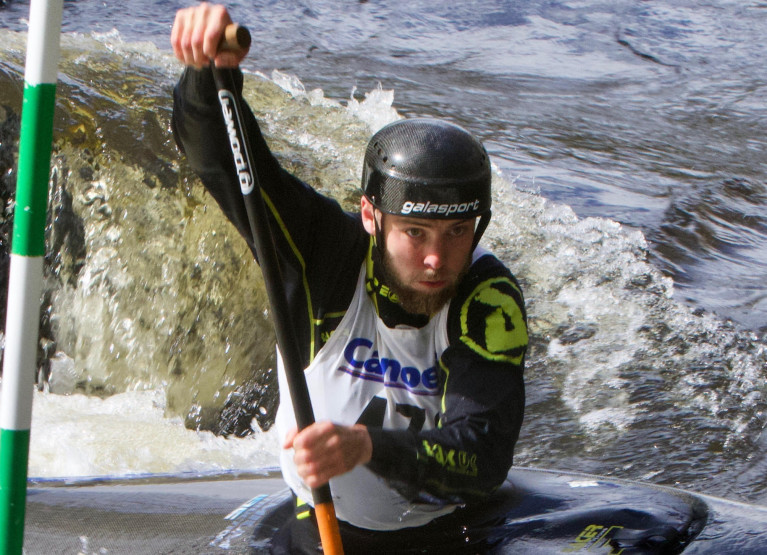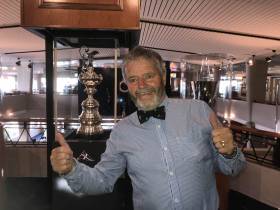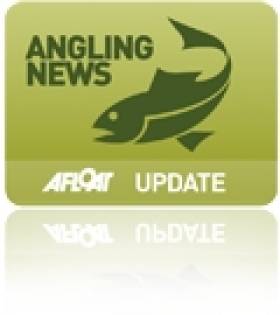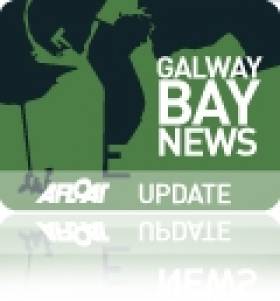Displaying items by tag: Team Ireland
Canoe Slalom racer Liam Jegou has become the first Team Ireland athlete to be selected for the Tokyo Olympic Games this summer. Originally from Ballyvaughan, Co. Clare, the France-based Jegou has already stamped his mark on the international stage, winning silver in the 2014 Junior World Championships and bronze in the 2019 U23 World Championships. The 24-year-old will compete in the C1 category at the Kasai Canoe Slalom Centre in Tokyo from the 26-27 July 2020.
Jegou is the second Irish athlete ever to compete in the C1 Canoe Slalom at the Olympic Games, with the only other athlete being Mike Corcoran, who last competed in Atlanta 1996, the year in which Jegou was born.
Jegou said he was intent on seizing his opportunity in Tokyo. “Being an Olympian has always been one of my biggest dreams. I started training when I was 11 or 12, the past month has been unbelievable knowing that I am going to compete for Team Ireland in the Olympics.
“In my sport the Olympics is everything, it’s what everyone works for in their sport. It’s such a select thing; there’s only one athlete per nation that gets to go and when you to go you just want to give it your all. Most people only get to go to the Games once or twice in their lives, and I’m certainly not going to let the opportunity pass me.”
Olympic Federation of Ireland Chef de Mission for Tokyo 2020, Tricia Heberle said: “It’s very exciting, this is our first athlete to be approved as part of Team Ireland for the 2020 Olympics – it’s great for the sport and great for Liam.
“There is a tremendous amount of work that goes on behind the scenes to support sports and our athletes to qualify and perform at the Games. It’s a real team effort with our National Federations, the Sport Ireland Institute and a range of other support groups working together with the athletes as our priority. Liam has his own story and we are so pleased to be supporting the next chapter in his journey as he prepares for the Tokyo Olympic Games.”
Canoeing Ireland Performance Director Jon Mackey described the significance of this for his sport: It’s big for any sport to qualify for an Olympic Games. For canoeing, it’s great for the exposure of the sport, we are relatively small, and it’s great to tap into the proud tradition of Irish canoeing at the Olympic Games.”
Jegou was nominated for the 2020 slot after finishing on top in the three-race selection criteria, which included the World Championships in Spain, the event in which Ireland qualified the coveted Olympic berth courtesy of Robert Hendrick.
The difference between C1 and K1 in Canoeing is that the C1 category involves the athletes using a single-bladed paddle to propel the boat forward while kneeling in the canoe. The K1 athlete is seated and uses a double bladed paddle. C1 Canoe Slalom has been on the Olympic programme since 1992 as a men’s event, and 2020 is the first year that a C1 women’s event is included, in the IOC move towards a gender-balanced games.
Ireland has a rich history in K1 Canoe Slalom, with Ian Wiley and Eoin Rheinisch competing in the event for three Olympic Games each between 1992 and 2012. Eadaoin Ní Challarain was the first Irish female canoe slalom racer, competing in the K1 in 2000 and 2004, and in London 2012 Hannah Craig raced in this event also.
This is the first official Team Ireland Tokyo team announcement. Many sports have ongoing selections and competitions with team announcements expected to come more frequently as we approach the summer, with the final announcement scheduled for the beginning of July.
America’s Cup For Ireland? Enda O’Coineen Makes ‘Challenge’ During NZ Visit
Is Ireland about to mount a challenge for the America’s Cup?
No so fast — the photo above is just Enda O’Coineen posing with the Auld Mug as it sits prude of place in the clubhouse the Royal New Zealand Yacht Squadron in Auckland.
Former Vendée Globe contender O’Coineen was invited to the home of this year’s America’s Cup winners yesterday (Friday 24 November) along with the rest of Kilcullen Voyager Team Ireland as they paused their summer circumnavigation of New Zealand.
The trip comes ahead of O’Coineen’s ‘unofficial’ completion of his previously abandoned solo round-the-world effort, as he joins the race to Les Sables from 25 January.
But first comes a return to Ireland next week for the launch of Kilcullen Voyager Team Ireland’s Schools Adventure programme, a workshop on using ocean adventure in education, a reception hosted by the French ambassador — indeed a packed calendar of events in the run-up to Christmas.
Meanwhile, with an offshore specialist like O’Coineen in charge, and a strong Irish contingent in the current Volvo Ocean Race who might feasably lend their talents, maybe an Irish America’s Cup team isn’t such a pipe dream after all…
#Angling - 2014 is proving to be a momentous year for shore angling in Ireland with a huge victory by Team Ireland at the Home Nations International Shore Angling Championships, which took place on the East Coast of Scotland last weekend.
The Senior Mens, Ladies and Under 16s teams all won gold, while the Under 21s Youth team took fourth place at this year's Home Nations Internationals, organised by the Scottish Federation of Sea Anglers and fished over two days at Montrose, a small town some 30 miles north of Dundee.
The championships - one of the highlights of the Home Nations angling calendar - are run under the auspices of the Sea Angling Liaison Committee of the United Kingdom and Ireland, and all the Irish anglers had fished the Irish Federation of Sea Anglers approved provincial qualifiers and the All-Ireland Inter-Provincial competitions to get their place on Team Ireland.
Friday 4 July saw the start of a highly competitive two days' fishing on Lunan beach, which proved challenging for all teams as conditions were wet, windy and weedy.
On day two, however, the weather improved. The Ladies, Under 21s and Under 16s teams fished the estuary near the Tay bridge in Dundee, a muddy estuary with flounder and eels as top catches. The Senior Men’s team, meanwhile, fished a rock venue and had mixed bags of codling, rockling and conger eels.
The success of all the teams is very positive in ensuring a future for shore angling for all in Ireland. This was also the inaugural championship for the Ladies teams as it was the first year that England, Wales Scotland and Ireland all sent women to the championships. Their success will surely prove a big boost for women's angling in Ireland.
The teams were supported by Angling Council of Ireland and Inland Fisheries Ireland, who are considering further more substantial financial support for international teams due to the obvious benefits of having top-class ambassadors abroad espousing the quality of angling and hospitality in Ireland.
The involvement and support from Coaching Ireland and the Irish Sports Council (ISC) has had obvious benefits, though according to Irish Federation of Sea Anglers (IFSA) chairman Tom Lillis: "It is about time the ISC opened the purse strings to get fully behind the IFSA as we will be hosting two CIPS World Championships in Ireland with a World Boat Championships in 2015, followed by the world Shore Fishing Championships for Men and Women in 2016."
The IFSA congratulated everyone involved for their hard work and dedication and thanked the Scottish Federation for their hospitality and friendship.
Team Ireland:
Senior Men's Team - Manager: John O'Brien; Team: Mike Curtin, Martin Howlin, Joe Carley, Noel Fogarty, Paul Whelan and reserve Peter Atkins
Ladies' Team - Manager: Jane Cantwell; Team: Lisa Gormley, Paula Johnston, Mary Hyland, Linda Manton, Anne Whitty
Youth Team/Under 21s - Manager: Jim Snoddy; Team: Gavin Fogarty, Alan Turner, Cian Egan, Ross Nolan, Nathan Davidson
Under 16s Team - Manager: John Kinsella; Team: Eamon Jones, Conor McDermott, Sean Cushin, Ruari Ganley, David Farrelly
Galwegian Special Olympian Athletes Celebrate On board Navy's Flagship
The world games which were held during June and July saw over 7,500 athletes from 185 countries participate in the Greek capital. Team Ireland in total brought home 107 medals, with athletes from Galway securing 11 medals and a number of ribbons in a variety of sports.
Speaking about the reception, Regional Director Myra Merrick said: "We are honoured to have the Naval Service docking in Galway especially for the function. The athletes deserve a warm reception and recognition for their wonderful success. It's a huge achievement in itself to participate at World Games level, let alone bring back a medal".
"The event presents an exceptional opportunity for the public to extend congratulations to our local sporting heroes, explore the Defence Forces vessel and meet the officers" she added.
The 1984 built /1,910 tonnes 'helicopter patrol vessel' and her seven fleetmates are all each assigned to a particular charity. In the case of L.E. Eithne she is associated with Our Lady's for Sick Children, Crumlin in Dublin.

































































